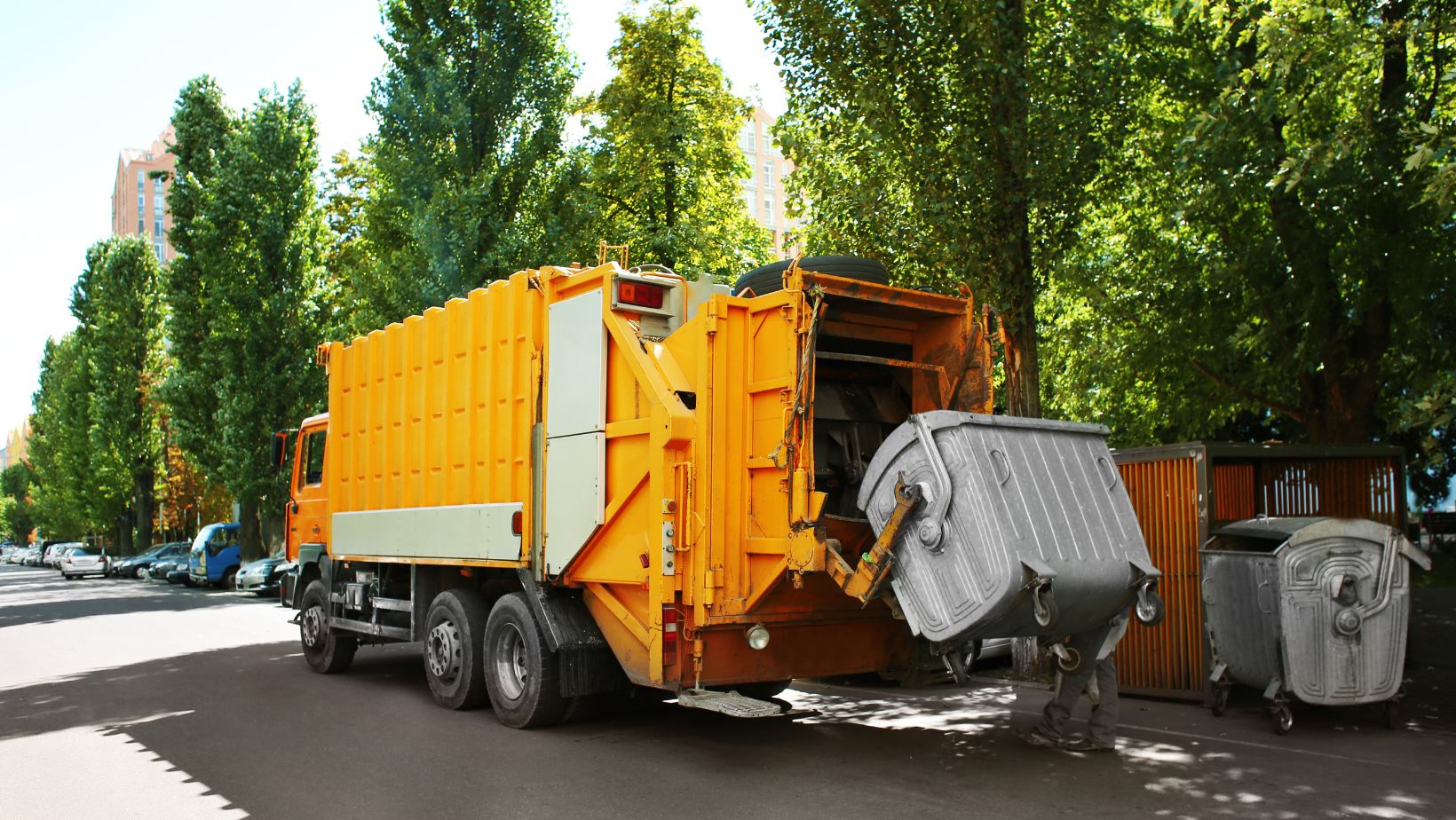
Managing your commercial waste more can help you unlock real cost savings and make your business operations smoother and more sustainable.
Here’s how you can get started.
What Is Commercial Waste?
Every business produces waste, whether it’s food, packaging, paper, or electronics. This is classed as commercial waste, and you need to handle it properly to comply with regulations and avoid unnecessary costs.
Common sources of commercial waste include offices, restaurants, retail outlets, and manufacturing facilities. The type and volume of waste you produce may vary, but you need to manage it properly.
The challenges that come with commercial waste are not always obvious. Disposal costs can rise quickly, especially with landfill taxes and collection charges. There is also a risk of non-compliance with environmental regulations, which can result in fines and damage to your reputation.
On top of that, poor waste management can harm your sustainability efforts and make it harder to meet your business’s environmental goals.
How Commercial Waste Affects Your Bottom Line?
Commercial waste can have a bigger impact on your business costs than you may realize. Poor waste management often leads to hidden expenses that eat into your profits.
Increased collection fees are a major issue when waste is not sorted properly. If recyclables are mixed with general waste, disposal companies may charge contamination fees in addition to the standard rates. Fines for improper disposal can also be costly, particularly if you’re not meeting your legal responsibilities.
There’s also an operational cost to consider. Storing waste can take up valuable space and make your work environment less safe and efficient.
Take restaurants, for example. Excessive food waste means paying more for waste removal, which also results in wasted stock and higher ordering costs. Reducing your waste can directly boost profit margins and improve business performance.
Industry-Specific Waste Issues
Hospitality and Restaurants
Food waste is a major concern in the hospitality sector. Perishable items have a short shelf life, and once spoiled, they add to your disposal costs. Cross-contamination between food and recyclable waste also makes your recycling more challenging and expensive.
Offices and Retail
In office and retail environments, packaging waste, paper, and e-waste (electronic waste) accumulate quickly. Without proper recycling measures, valuable resources are lost, and disposal costs rise unnecessarily.
Manufacturing and Warehousing
Manufacturing and warehousing operations often generate large volumes of industrial waste, packaging offcuts, and materials that can be reused or recycled. Poor planning for waste disposal can also quickly escalate costs here.
Effective Strategies for Managing Commercial Waste
Conducting a Waste Audit
A waste audit is one of the most important first steps to managing your commercial waste. Start by reviewing the types and quantities of waste your business produces over a set period.

Track where your waste is coming from, how much is generated, and how it’s currently being disposed of. This information will highlight opportunities for improvement, such as better segregation, reduced waste generation, or adjustments to your collection schedule.
Segregating Waste at the Source
Sorting waste at the point of disposal makes recycling easier and cheaper. Provide clearly labeled bins for different waste streams, such as general waste, food waste, recyclables, and glass.
Training your staff on the importance of correct waste separation can make a significant difference. When recycling streams are kept clean, disposal companies can process them more easily. This will also reduce your costs and boost your recycling rates.
Implementing a Food Waste Recycling Program
Food waste recycling is a key opportunity for businesses in the hospitality and food service sectors. Depending on your business, you may consider on-site composting or arrange off-site food recycling collections. It’s also a valuable step towards achieving wider sustainability goals.
Reducing Commercial Waste Through Prevention
Better Inventory and Stock Control
Reducing waste starts with controlling the amount of material you bring into your business. Regularly review your inventory management practices to avoid overordering, which can lead to spoilage and unnecessary disposal costs.
Small changes can significantly reduce waste, especially in businesses that handle perishable goods.
Staff Training and Engagement
Getting your team on board is crucial. Regular training sessions on recycling procedures, correct waste separation, and minimizing waste generation can have a major impact.
Consider setting up incentives or recognition programs to reward your staff for innovative waste reduction ideas. Small initiatives like these can build a culture of waste awareness across your business.
Upcycling and Donating Excess Materials
Materials that are no longer useful to your business could be valuable to someone else. Consider partnering with local charities, schools, or innovation hubs that can reuse or repurpose your unwanted materials.

This will divert waste from landfills and strengthen your company’s community connections.
Choosing the Right Commercial Waste Disposal Partner
What to Look For
Choosing the right waste disposal partner is vital. Look for a company that holds all necessary licenses and offers transparent waste tracking and reporting.
Ask about their recycling capabilities, how much waste they divert from landfills, and whether their services can fit your business needs.
Questions to Ask Providers
When speaking with potential providers, it’s worth asking:
- Do you offer waste audits as part of your service?
- What recycling rates can you guarantee?
- Can you provide flexible collection schedules based on our changing needs?
Your partner should be able to specialize their services around your business, not force you into a standard package that may not be a good fit.
The Value of a Custom Waste Plan
Flexible contracts and collection schedules that adjust to your actual waste volumes help you avoid paying for unnecessary pickups. A customized waste management plan ensures you only pay for the services you truly need.
How Waste Management Supports Your Sustainability Goals
ESG Reporting and Brand Reputation
Today’s customers, investors, and employees are increasingly drawn to businesses that can demonstrate strong environmental practices. Efficient waste management supports your Environmental, Social, and Governance (ESG) reporting and boosts your brand’s credibility.
Meeting Legal Obligations
Keeping up with your waste responsibilities is more than good practice. It’s a legal requirement. Proper disposal protects your business from penalties and ensures compliance with environmental laws and regulations.
Becoming a Circular Business
Good waste management practices can help your business transition to where materials are reused and recycled instead of being thrown away. For example, food waste can be turned into compost for agriculture and fed back into your supply chain.
Conclusion
Managing commercial waste is more about keeping your bins from overflowing. It’s about making smart choices that protect your bottom line and support a greener future. When you reduce waste, improve recycling, and partner with the right organizations, you save money and enhance your reputation.
The first step is often the simplest. Understand where your waste is coming from and take action from there. Ready to take control of your commercial waste? Start by booking a free waste audit with your local provider. You can also talk to a licensed expert to see how your business can save money and reduce waste today.
